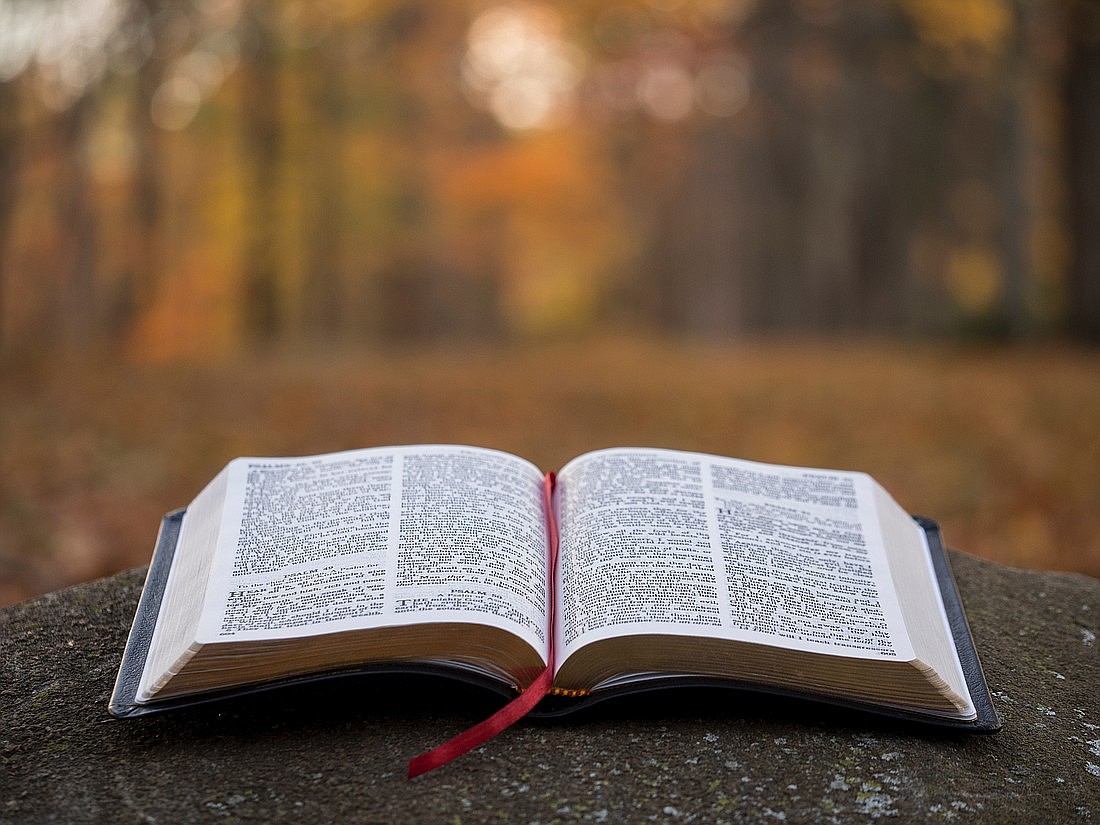October 2, 2024 at 10:43 a.m.
The primacy of relationships
Both the one who makes people holy and those who are made holy are of the same family. — Hebrews 2:11
Sunday’s readings call us to a deeper look into the importance of relationships. In the reading from Genesis, the LORD God says, “It is not good for the man to be alone. I will make a suitable partner for him.” It’s important to note the use of LORD. When LORD is capitalized it refers to the personal name of the God of Israel, the name too sacred to be spoken, YHWH. This is the name that God gave to Moses when God, Adonai, established a special relationship with Moses and the people. (The fact that this occurs in Exodus, but the name is used in Genesis, is a story for another time.)
It is also interesting that in the first creation story, Creator declares at the end of each day, “This is good.” But here something is NOT good — the absence of a suitable partner, the absence of a meaningful relationship for the man. Creator moves immediately to remedy the situation by asking the man to establish a relationship with all the animals. These are important relationships but not completely satisfying. Then God creates the woman. Man is delighted and declares “this one is bone of my bones and flesh of my flesh.” This creates an unbreakable union.
The First Reading offers a foundation for Jesus’ teaching in the Gospel. Even in Jesus’ time divorce was a difficult subject. The Pharisees who approached Jesus could have belonged to two different schools of thought — one which allowed divorce for almost any reason and one that allowed it only in cases of adultery. Jesus doesn’t get embroiled in these arguments. The other complication to divorce was the dishonor and shame it brought to the families. Marriage was not merely between partners, but between families. The parents selected the partners, which formed stronger family units. Since God chose one’s parents and parents chose one’s partner, then God was ultimately responsible for the choice of marriage partner. Jesus reinforces the teaching, “What God has joined together let no human separate.” So divorce separated families, not just partners. The shame brought on by this separation often led to family feuds (see John J. Pilch, “The Cultural World of Jesus, Cycle B.”). It’s obvious that this would lead to many fractured relationships.
Many of the problems with divorce that were rife in Jesus’ time are not so in our culture. But divorce still can bring shame and stigma to a person. Divorce is difficult and hurtful for a multitude of reasons. One’s identity is shaken and upended with little social support to be found. There is loneliness and a feeling of isolation. The important thing for the Christian community is to help the parties to heal. Refusing to judge or gossip about the situation helps. Being available to listen and accompany someone in this painful time is a soothing balm. Reaching out to the divorced parties shows that they are still valued. We need to be the heart and hands of Jesus, extending compassion.
The Catholic Church allows divorced Catholics to receive Communion. The Church does not permit divorced people to remarry in church or receive Communion without an annulment, but they are welcomed to participate in the life of their parish. Is this a reality in your parish? Is there a welcoming place for separated/divorced Catholics?
It was Jesus’ deepest desire that relationships grow and deepen, that we include everyone in our circle of care. Jesus’ teaching on forgiveness, his actions welcoming everyone to come to him, his healing ministry shows that he was dedicated to forging and healing relationships. We know that sometimes relationships are wounded, even fractured. But we need to search out ways to follow Jesus’ example of unifying love. This is the heart of the Gospel message!
- Tanzania’s Cardinal Pengo remembered as giant of faith, a ‘towering presence’ for Africa
- Bishops urge prudence, prayer, invoke Guadalupe’s protection as violence erupts in Mexico
- St. Francis’ relics open to public for first extended veneration in 800 years
- ‘We will grow in wisdom, holiness together,’ new bishop of Tucson, Ariz., tells faithful
- Pope renews ‘heartfelt appeal’ for ‘immediate ceasefire’ in Russia-Ukraine war
- Full text: Pope Leo XIV’s Angelus address given February 22, 2026
- God offers new possibilities, not prohibitions, with his invitation to love, pope says
- Find comfort, strength in Eucharist, pope tells attendees at LA Religious Education Congress
- Pope Leo XIV tells priests not to use AI to write homilies or seek ‘likes’ on TikTok
- Historical novel pitches Christian compassion against ideologies of hatred








Comments:
You must login to comment.